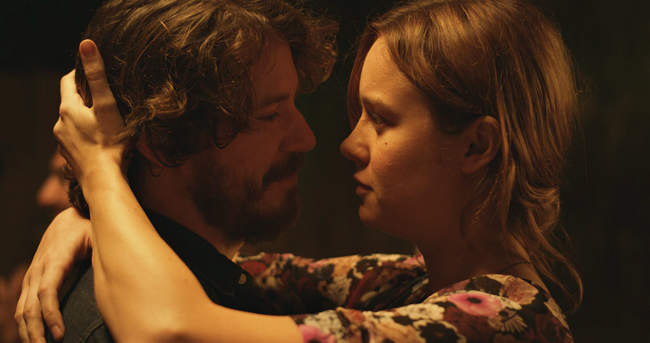At this year’s South By Southwest film festival, “Short Term 12” premiered to massive acclaim, going on to win the festival’s Audience and Grand Jury awards. The film is a quietly stunning and emotional powerhouse with a remarkably warm and compassionate performance from Brie Larson. Larson plays Grace, a supervisor at a facility for at-risk children, and the film’s careful handling of Grace’s relationship with several of the kids makes it a deeply felt, wonderfully acted experience.
The Daily Texan spoke to Brie Larson about the film last week.
Daily Texan: How did you get involved with “Short Term 12,” and what drew you to this role?
Brie Larson: I got involved by the script being sent to me, and Destin [Cretton] and I had a follow-up Skype call where we just discussed Grace and the script and filmmaking and the reasons behind making a movie, and we just really clicked.
DT: Once you decided you were going to do the film, what sort of preparation went into the role?
BL: I shadowed at a facility and spent a lot of time on the Internet — there’s a lot of research that can be done there, a lot of interviews online of people that have the same job as Grace. I spent time talking with Destin, who had worked at a facility like that for two years.
DT: What did you pick up from observing those workers that you incorporated into your performance?
BL: Yeah, all of it! I wouldn’t have known how to do the job if I hadn’t watched them and learned how to do everything. From how to talk with a firm voice and to use restraint … Everything is done to make sure these kids stay on task and feel safe.
DT: The director had you and John Gallagher Jr. work through a list of questions when you first met. Could you talk a bit about that acting exercise?
BL: We didn’t have much time to prepare before the film started, so John and I went to dinner to get to know each other, and as John was leaving, there was an envelope on his doorstep from Destin that said: “Do not open until you get to the restaurant.” When we arrived, we opened it and inside were little pieces of paper that were conversation starters. They were questions ranging from: “What are your hopes and dreams for being a parent?” to specific questions about Grace and Mason [Gallagher’s character] and childhood memories. By the end of that dinner, we had created a whole mythology for Grace and Mason.
DT: You worked with some remarkable young actors in the film, especially Keith Stanfield and Kaitlyn Dever. How was working with those kids?
BL: I was just completely in awe by the depth and ability that everybody had. For a movie that has some very deep moments in it, it was just such a light and fun set. We never really did more than a couple of takes of anything, and we kind of created a little family. Destin encouraged John and I to really take on the role of the leader of these kids on- and off-camera. We’d play games and hang out with them and make sure we had a very comfortable relationship, so we could create an environment where it was really okay to make a mistake because there were no such things. The idea of being able to fart in front of one another was a very important aspect of the set.
DT: There’s a real tonal delicacy to the movie. It really breaks your heart but finds a way to make you smile through the tears. When you’re filming those heavy scenes, how do you approach something like that?
BL: The director just left me alone. I just listened to a lot of Norwegian black metal and went through my process. I like to know how much time I have, so they’d give me a five-minute warning, and I’d jump in.
DT: What was the most challenging scene for you to film?
BL: There were moments where I personally left the character. There was one time where I wasn’t really Grace, I was myself, because I cried when Grace wouldn’t have cried. When Marcus shaves his head, I was so moved by Keith Stanfield’s performance that I had to excuse myself from the scene and cry.
DT: You’ve been having a great year working with Destin here, James Ponsoldt on “The Spectacular Now” and Joseph Gordon-Levitt on “Don Jon.” Can you talk about working with all of those directors and their approaches to filmmaking?
BL: That is the joy of the process, knowing that you’re never gonna get into a character or find a way to get out of it the same way twice. For the most part, I enjoy following the lead of the director and going down the rabbit hole with them, whatever that means. You’ve got guys like Oren Moverman, where everything in a scene is lit to allow for an improvised nature, versus your Edgar Wrights, who have a very specific and focused idea as to where even your eyes should be when you’re talking and where you should be looking. Both are welcomed and important for whatever story they’re trying to tell. It’s different ways of getting to the essence of a project.
The Texan will have a review of “Short Term 12” when it opens in Austin on Friday, September 20.















